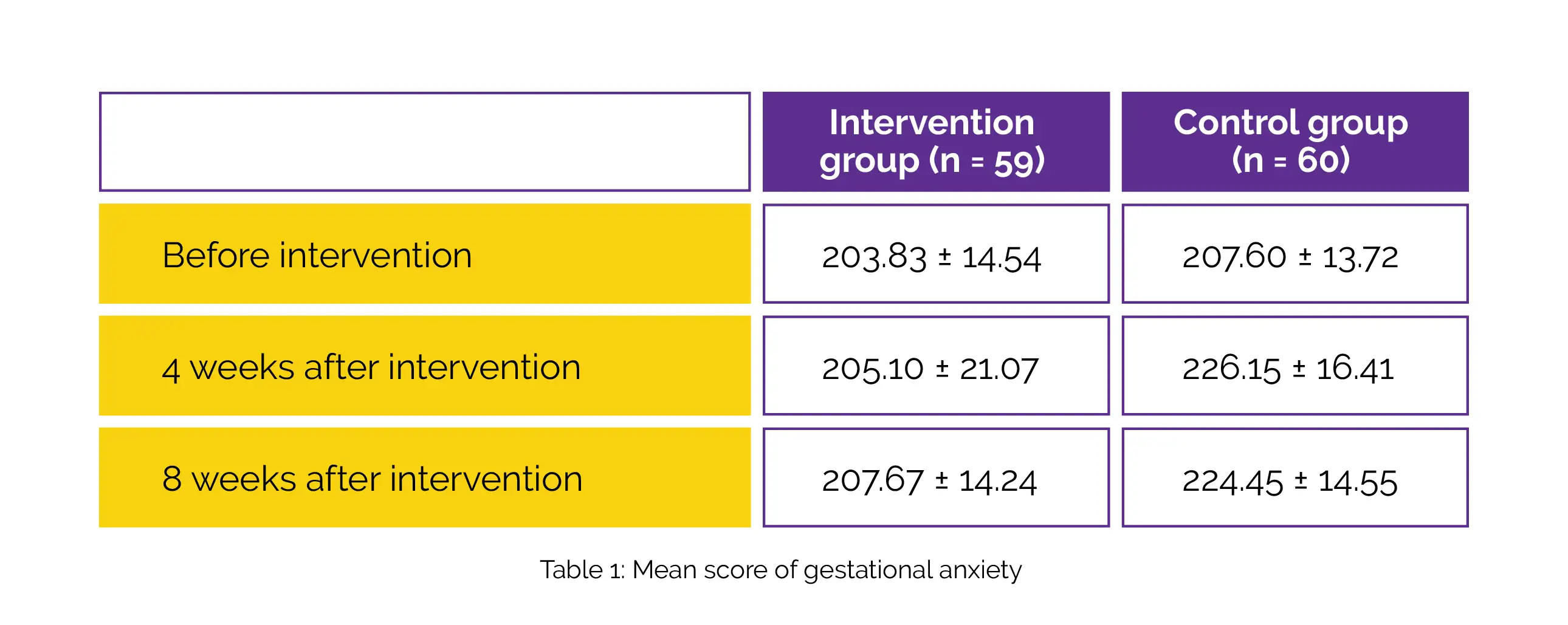Categories
Change Password!
Reset Password!


A double-blind randomized controlled clinical trial sought to assess the effects of Omega-3 fatty acid supplements on pregnant women's sexual function and gestational anxiety.
Omega-3 supplements can help pregnant women feel less anxious and have better sexual function.
A double-blind randomized controlled clinical trial sought to assess the effects of Omega-3 fatty acid supplements on pregnant women's sexual function and gestational anxiety.
A total of 124 pregnant women at 16-22 weeks of gestation were involved (62 in each group). Over the course of eight weeks, patients in the intervention group got Omega-3 supplements (300 mg), while those in the control group received a placebo. The Van den Bergh pregnancy-related anxiety questionnaire (PRAQ), female sexual function index (FSFI), three 24-hour dietary recalls, and demographic questionnaire were used in the study for the collection of data.
Prior to the intervention, there was no clinically meaningful inter-group difference in the total score of sexual function and total score of gestational anxiety. Contrasted to that of the control group, the mean total score of sexual function in the intervention group was considerably greater following intervention at 4 and 8 weeks. In comparison with the control group, the mean total score of gestational anxiety in the intervention group was substantially lower, 4 and 8 weeks following the intervention, as shown in Table 1:

From baseline to follow-up, the percentage of polyunsaturated fatty acid (PUFA) consumption from daily calorie intake between the intervention and control groups was not clinically meaningful, according to three 24-hour dietary recalls, independent of daily intake of 300 mg of Omega-3 supplement.
The use of Omega-3 supplements may effectively enhance sexual functioning in expectant women by lowering pregnancy anxiety.
International Journal of Impotence Research
Effect of Omega-3 fatty acid supplementation on sexual function of pregnant women: a double blind randomized controlled trial
Zeinab Khanjari et al.
Comments (0)